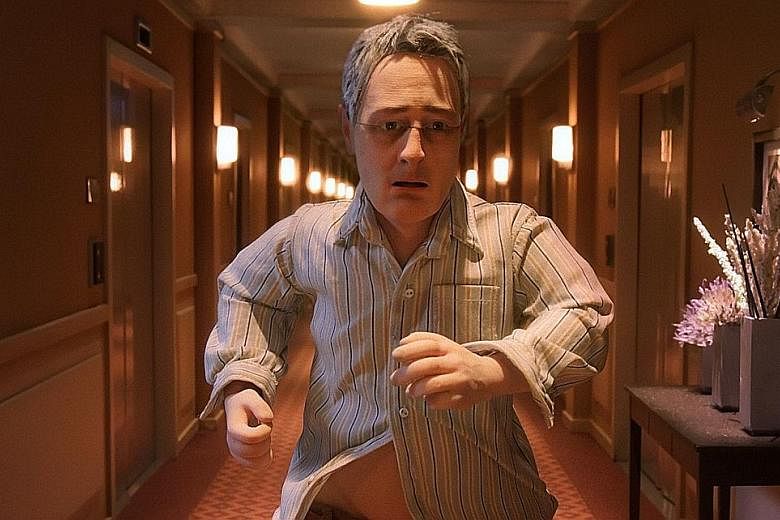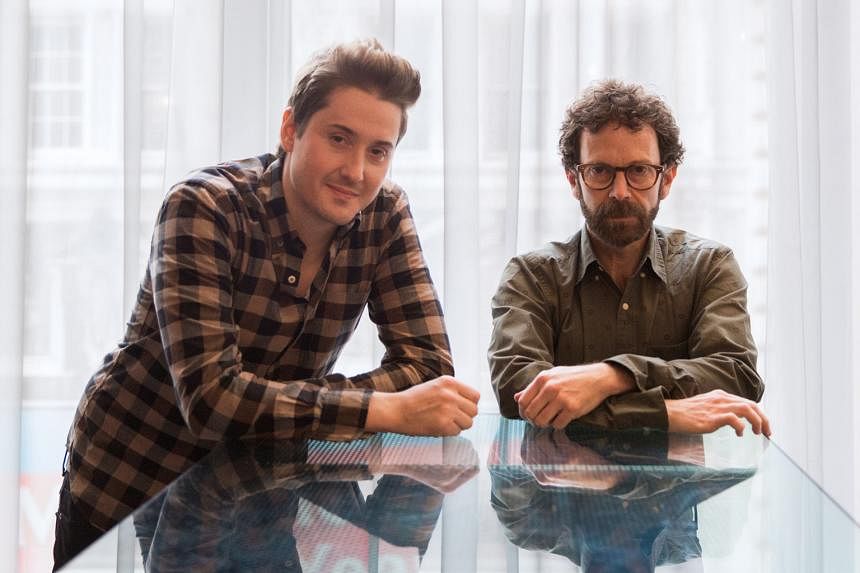Crowdfunding site Kickstarter helped writer-director Charlie Kaufman and his team make their Oscar-nominated movie, Anomalisa.
However, having more than 5,700 financial backers for the animated feature proved so stressful that the film-makers will probably never use Kickstarter again.
Speaking to The Straits Times, Kaufman, 57, admits he "would rather not" make another film this way, hinting that some of the movie's Kickstarter supporters have been somewhat impatient and hard to satisfy.
"I would rather do it without that burden attached to it," he says.
"Because the burden of making a movie is so extraordinary in and of itself, especially when you don't have a lot of money."
The Oscar-winning screenwriter, who was behind quirky, cerebral dramas such as Eternal Sunshine Of The Spotless Mind (2004) and Being John Malkovich (1999), wrote and co-directed Anomalisa, a stop-motion animated film which opens in Singapore today.
A surreal story about a troubled customer-service guru who becomes paralysed by the mundanity of life, it has been a critical hit, nominated for Best Animated Feature at the Academy Awards next week - it is the first non- documentary Kickstarter-backed feature to be nominated for an Oscar.
Yet, while the unusual funding route enabled the film-makers to realise their creative vision independently of a major movie studio, that freedom came with an unexpected cost: the burden of satisfying their 5,770 Kickstarter backers, who had each pledged between US$5 (S$7) and US$10,000 for a total of US$406,237, before a British film producer stepped in to provide the rest of the US$8 million needed.
In exchange, Kickstarter backers were promised rewards ranging from signed copies of the script for those who gave at least US$150, to a mention on the film's Facebook page for those who donated US$5.
Fulfilling all those promises to the backers' satisfaction has turned out to be incredibly taxing, says Duke Johnson, Kaufman's 37-year-old co-producer and co-director.
"I think there's an impression out there that it's kind of an easy way for people to get independent financing. I do not find that to be true," he says.
"It's a full-time job, managing Kickstarter. Even after the Kickstarter campaign ended, you're still doing it for years. You have a relationship with these people now and, you know, people want to be updated, even if they gave you a dollar.
"And I think that's sort of the agreement you're stepping into when you asked them for this money. I get that and I think it's a great thing, but I would hope that I wouldn't have to rely on it again to make a movie.
"When you deal with 6,000 people, there are lots of different personalities and people want different things. Some people get the impression that they're like investors in the film. But you know, it was an interesting experience. It's challenging in its own right."
Kaufman agrees. Since they made the decision to go the Kickstarter route, the film-makers have had to "live with the result of it", he says.
"There are a lot of people from Kickstarter involved in this and they have expectations.
"It's important to us to make the movie, which is the most important obligation we have to them: to make the best thing that we can with the help they gave."
However, the deal was that "along the way they want updates, they want rewards and it took longer to get these because… we can't send out scripts when the movie's not out yet".
"This movie they thought was going to be done a couple of years ago hadn't been finished," Kaufman says.
"All that stuff is in the works and all that stuff is going to be given out. We're taking care of it", adds the film-maker, who has two children with his wife, Denise.
Kaufman and Johnson admit that a project as quirky as Anomalisa - which features the voices of actors David Thewlis and Jennifer Jason Leigh - would probably never have been made otherwise.
Before turning to Kickstarter, Johnson and fellow producer Rosa Tran had tried and failed to find financing through the studio system and conventional sources, with the unusual nature of the story proving a hard sell.
"This might not have happened at all if not for Kickstarter," Johnson says.
Kaufman adds: "I think Kickstarter was essential to the process. The reason we got the rest of our financing was because we got attention from the Kickstarter campaign and Keith Calder, who has a company called Snoot. He read about it and offered his assistance."
Without that early buzz, Anomalisa might have been financed, but with strings attached, Kaufman believes.
"We might have made the movie in a completely different circumstance. We might've been tied to a production company where it had control.
"But as it was, we had complete control through Kickstarter and Keith and we made the movie we wanted to make.
"I think that was because of Kickstarter. There's no way to know, but that's my suspicion."
• Anomalisa opens in Singapore today.


